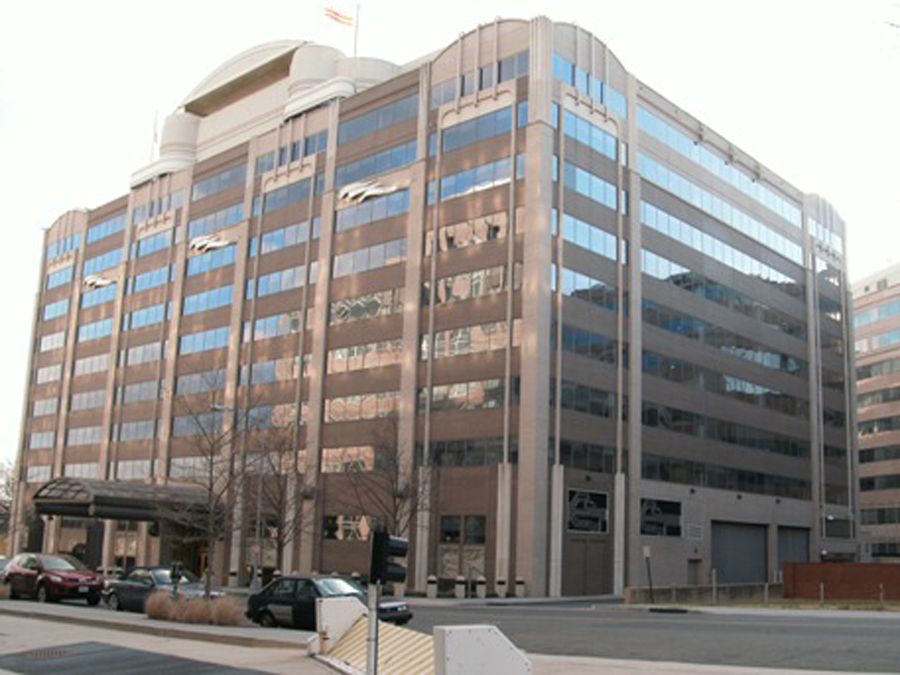Broadcasters: Court Must Throw Out FCC's Foreign Ownership Order
Said disclosure investigative mandate is over-burdensome and illegal to boot

The smarter way to stay on top of the multichannel video marketplace. Sign up below.
You are now subscribed
Your newsletter sign-up was successful
Broadcasters have filed an initial joint brief in their legal challenge to the FCC's decision boost disclosure requirements for foreign government-sponsored programming.
The FCC voted unanimously in April to boost broadcasters’ disclosure requirements for programming on airtime leased by a foreign entity. The move came amidst heightened focus on disinformation campaigns and despite pushback from broadcasters, who argue the FCC is adding regulations to an already overregulated service.
Broadcasters argued in their brief that the FCC doesn't have the authority to impose the obligations on broadcasters to investigate "every existing or new leased programming agreement" to insure it does not run afoul of FCC rules.
And suggesting the FCC was signaling broadcasters for special mistreatment, the petitioners--the National Association of Broadcasters, Multicultural Media, Telecom and Internet Council (MMTC), and National Association of Black-Owned Broadcasters--said the FCC order didn't say anything about undisclosed foreign government programming on cable or over-the-top, which they argue the real problem is.
Broadcasters have also said that the FCC did not ask a single question about leased time in its notice of proposed rulemaking seeking comment on the changes, “and thus gave no notice that leases were the focus of its proceeding.” The result, they said, was that the FCC made the decision without any information on the actual impact of the new due-diligence requirements.
Per the rule change, broadcasters are required both to provide clear and uniform disclosures at “reasonable intervals” when airing leased content sponsored by a foreign government, but also take a number of steps to determine if leased airtime is being used for such programming. It also requires broadcasters to place copies of their disclosures in their public files.
The rules require “a specific disclosure at the time of broadcast if a foreign governmental entity has paid a radio or television station, directly or indirectly, to air material, or if the programming was provided to the station free of charge by such an entity as an inducement to broadcast the material.”
But the petitioners argue that FCC could have taken less restrictive means to the same end of enhanced disclosure, including by limiting broadcasters investigatory obligations to leases "where the broadcaster had a reason to know the sponsor was a foreign governmental entity."
Since the FCC did not use the least restrictive means, the order was "arbitrary and capricious," they argue, and thus in violation of the Administrative Procedure Act.
"NAB, MMTC and NABOB strongly urge the Court to overturn the FCC's flawed decision requiring overly burdensome investigations by every broadcaster into every sponsored program," the groups said in a joint statement on the petition. "While we share the Commission's goal of ensuring the public understands when listening or viewing programming supplied by foreign governmental entities, the FCC's order fails to adequately, sensibly or fairly achieve this objective. We appreciate the Court's consideration of this issue and believe it will agree that the Commission overstepped its bounds." ■
The smarter way to stay on top of the multichannel video marketplace. Sign up below.
Contributing editor John Eggerton has been an editor and/or writer on media regulation, legislation and policy for over four decades, including covering the FCC, FTC, Congress, the major media trade associations, and the federal courts. In addition to Multichannel News and Broadcasting + Cable, his work has appeared in Radio World, TV Technology, TV Fax, This Week in Consumer Electronics, Variety and the Encyclopedia Britannica.

